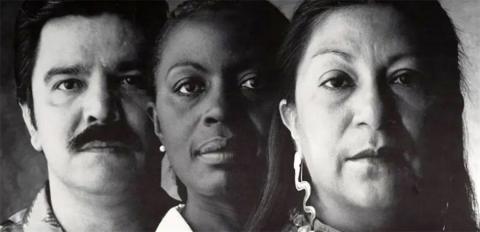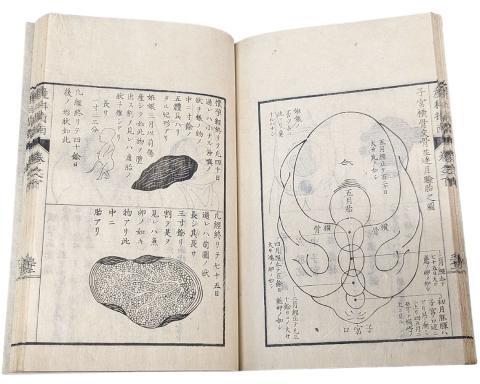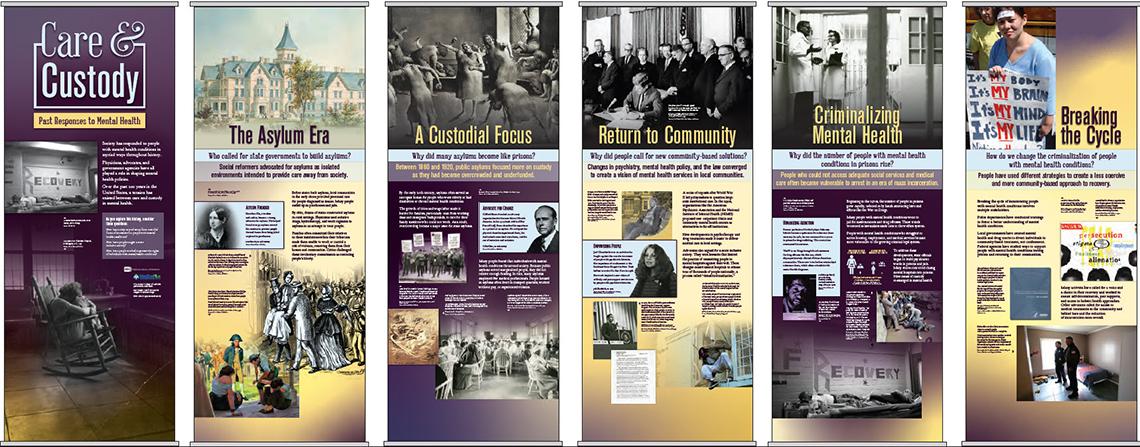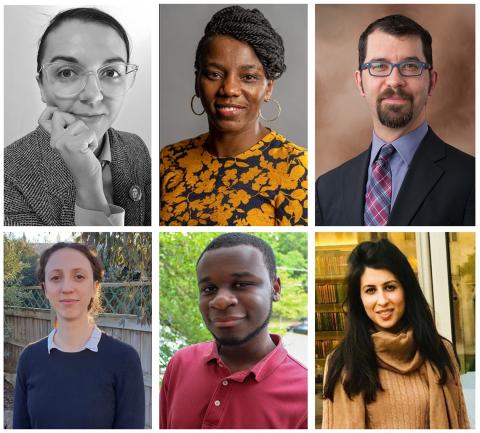Achieving DEIA
NLM Collection Demonstrates Breadth, Depth

Photo: American Diabetes Association/NLM Collection
A multidisciplinary staff of the National Library of Medicine (NLM) maintains and makes publicly available a world-renowned collection of material spanning 10 centuries, originating from all parts of the globe. This collection encompasses various formats including monographs, original manuscripts, audio-visuals and born-digital material to constitute the future historical record.
Below are examples of recent achievements in collection stewardship and public engagement that demonstrate how NLM contributes to diversity, equity, inclusion and accessibility (DEIA) through its public service as a national library at NIH.
Recent Acquisitions
NLM’s acquisition of rare and unique material complements the diverse and global scope of its collection. Among these acquisitions are several from China and Japan, including a first edition of an illustrated obstetrical work by Shusai Omaki.

Photo: courtesy of NLM
Published in 1826, the book was edited by Hoyuu Morisaki, Omaki’s female assistant, who added observations of her own on the prevention of miscarriage, breech babies, bleeding in the mother and more. The book, which reveals that Morisaki supervised five women trainees, is likely the first in Japanese medicine written or edited by a woman.
NLM staff will spotlight these and other new acquisitions as part of an ongoing series on the blog Circulating Now, as part of its ongoing New Acquisitions series of posts, which has been viewed more than 69,000 times.
Traveling Exhibitions
DEIA is a hallmark of NLM’s portfolio of 29 traveling exhibitions. The popularity of these exhibitions stems from how they reflect DEIA perspectives in the history of medicine that support the efforts of NLM’s users to raise awareness of DEIA’s importance in their institutions and the communities they serve.
Curated from NLM’s collection and available through an equitable booking process, the exhibitions travel to hundreds of locations throughout the U.S. and Canada. Beginning January 2023 and running through May 2025, the exhibits are reaching 256 institutions in 223 cities across 47 U.S. states and three cities in Canada.
Exhibition hosts come from a wide range of institutions, such as academic and public libraries, cultural and professional organizations and even a private high school. Among these venues nearly 200 are members of the Network of the National Library of Medicine who work to advance the progress of medicine and improve public health by promoting equitable access to biomedical and health information among health professionals and the public.

Photo: courtesy of NLM
For example, “Care and Custody: Past Responses to Mental Health” examines how immigration has been an important part of the American story, and how health care and medicine have played a role in inclusion and exclusion, in dividing communities and strengthening them.
After hosting Care and Custody, staff from Oak Bluffs Public Library in Massachusetts said, “This was a wonderful opportunity to highlight mental health issues and resources for our community…which inspired so many positive connections!” Joining Care and Custody and many other traveling exhibitions are English/Spanish bilingual exhibitions, all supporting NLM users through the lens of DEIA.
Research Access to Collection
DEIA also characterizes research access to the collection by diverse cadres of NLM Michael E. DeBakey fellows in the History of Medicine and invited speakers in the NLM History Talks series.

Photo: NLM
To date, NLM has named 31 DeBakey fellows, providing each with research stipends to support their work in NLM’s collections both onsite and remotely.
This international and multidisciplinary cohort has produced an impressive body of published research—including five scholarly books, four articles and 18 essays on Circulating Now—that has been viewed almost 40,000 times collectively.
Research topics have highlighted DeBakey’s successes as a surgeon, statesman, educator and humanitarian, and gone beyond his personal legacy to explore urban health care models, health science librarianship, gender roles in the history of medicine, civilian wartime internment, maternal health and more.
NLM History Talks, a popular lecture series based on research completed in the NLM collection, showcases the diversity of researchers from around the world. Since 2020, NLM has hosted 24 topics ranging from ancient Islamic manuscripts to Renaissance art to Covid in the 21st century.
Web Archiving
NLM also advances DEIA through its web archiving program, where staff prioritize online resources that represent historically underrepresented groups, communities or perspectives, and further the diversity and inclusion of the collection.
Among key elements staff use to ensure representation and inclusion is the All of Us Guide for Diversity and Inclusion table published in the 2020 article “Diversity and inclusion for the All of Us research program: A scoping review.”
Such elements inform how staff assess informational and intrinsic value, and uniqueness to include sites like that of the Native Women’s Society of the Great Plains, which offers resources aimed to end domestic and sexual violence against Native women.
Moving Forward
NLM began in 1836 as a small collection of medical books and journals in the office of the U.S. Army Surgeon General. As NLM approaches its third century of public service, in 2036, its multidisciplinary staff will continue to advance DEIA through its collections and by engaging the public through current and expanded products and services.
Laura Hartman, Jiwon Kim, Ken Koyle, Christie Moffatt, Krista Stracka and Jeffrey Reznick contributed to this article.
